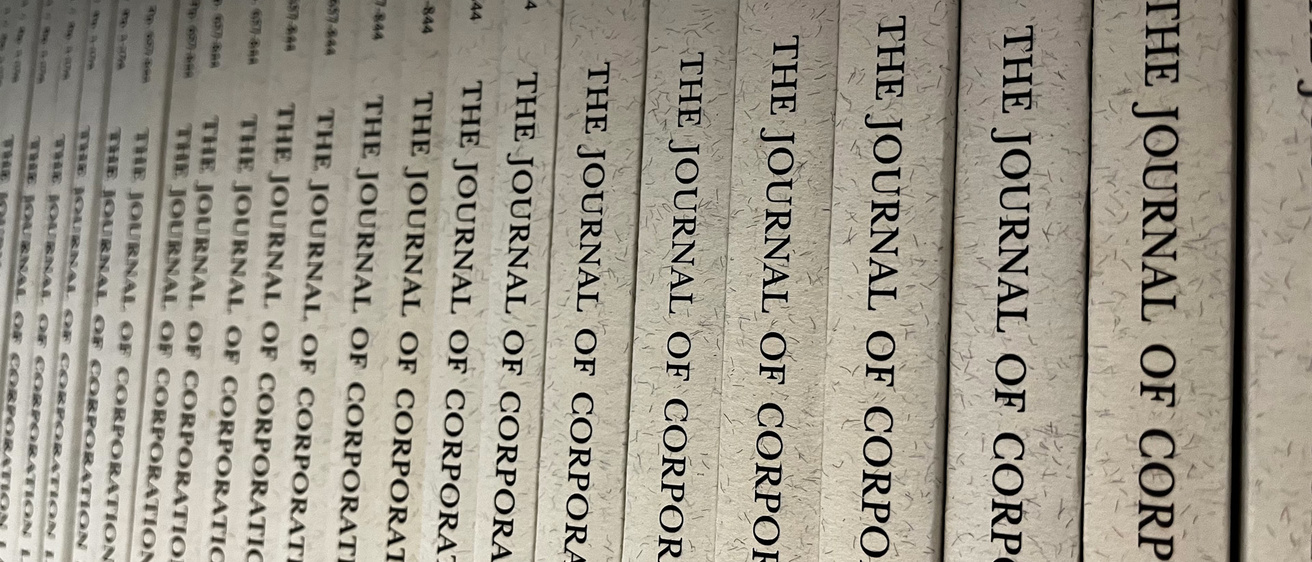In this issue:
Do Networks Govern Contracts?
An influential literature in private law argues that the legal system interferes with modern markets’ “private ordering.” Private ordering refers to parties relying upon informal institutions, like social norms and reputational sanctions, to enforce legal obligations. This informal governance is made possible by thick networks of social or commercial relationships, which circulate information about parties’ behavior. Social networks, not the state, govern commerce.
Lawyering Up
This Article is the first to analyze a sea change in bank governance—the precipitous rise of lawyer-directors in the past two decades. Using novel empirical evidence, we show that lawyer-directors are associated with efficient changes in risk management and significant increases in bank value. Banks with lawyer-directors assume more risk in ordinary circumstances and less risk when a crisis arises, in each case making those banks more valuable.
From Managers to Markets: Valuation and Shareholder Wealth Maximization
During the managerialist period, managers of large public companies were not pressured to maximize profits and had more discretion to consider the interests of stakeholders. According to the conventional story, managers began maximizing shareholder wealth as ideology changed to favor shareholders. This Article argues that a more significant cause of the decline of managerialism was a fundamental shift in the way that investors valued companies.
What Do Stockholders Own? The Rise of the Trading Price Paradigm in Corporate Law
Corporate law is on the cusp of a paradigm shift—a revolution in the definition of the stockholder’s entitlement. For a century, a simple proposition sat at the heart of corporate law: a share of stock may have some trading price, but in an intracorporate dispute that trading price has no necessary bearing on the value of an individual stockholder’s entitlements. Instead, the stockholder’s entitlement is determined by inquiring into the value of the corporate enterprise as a whole, not the individual fractionalized share.
